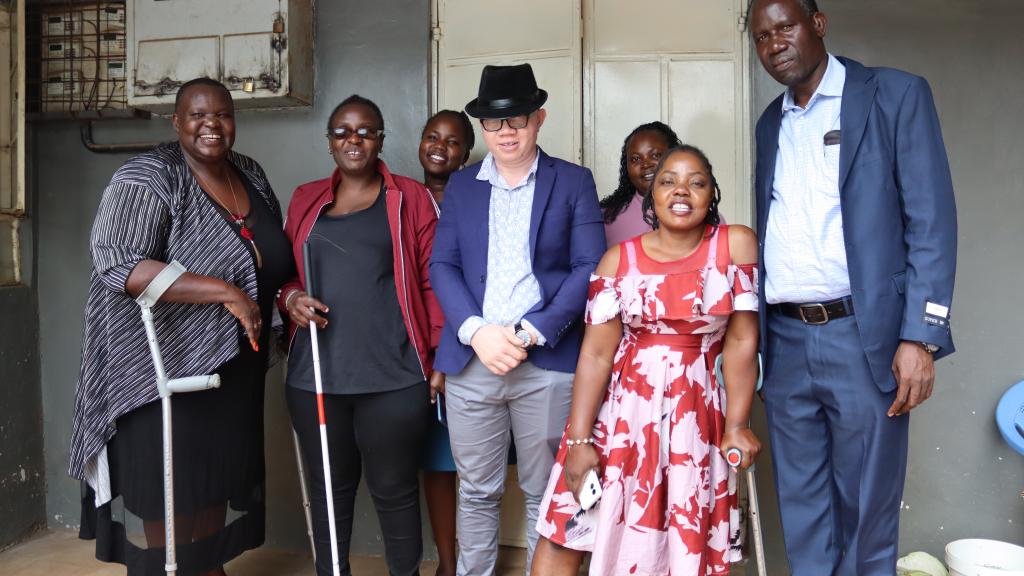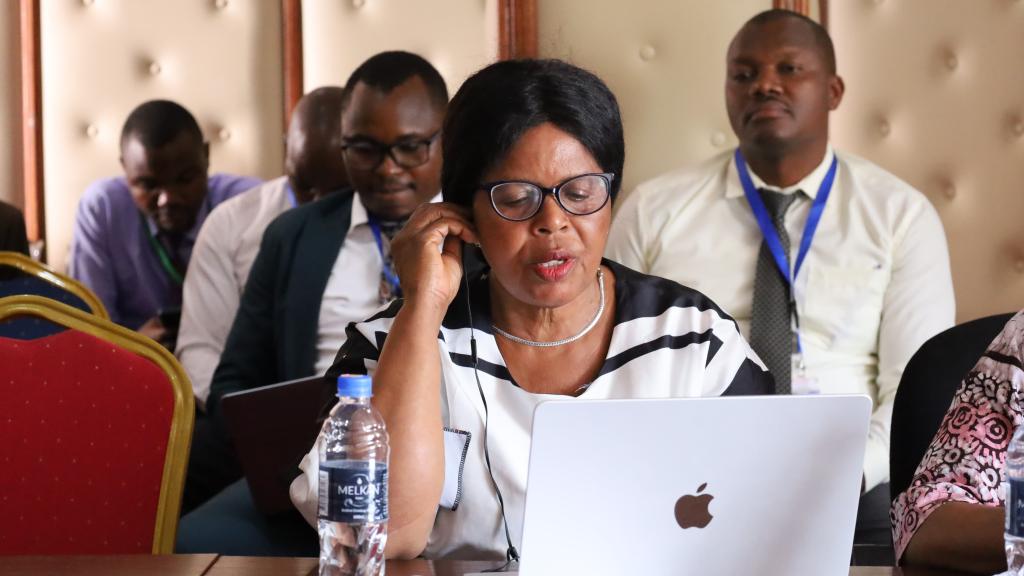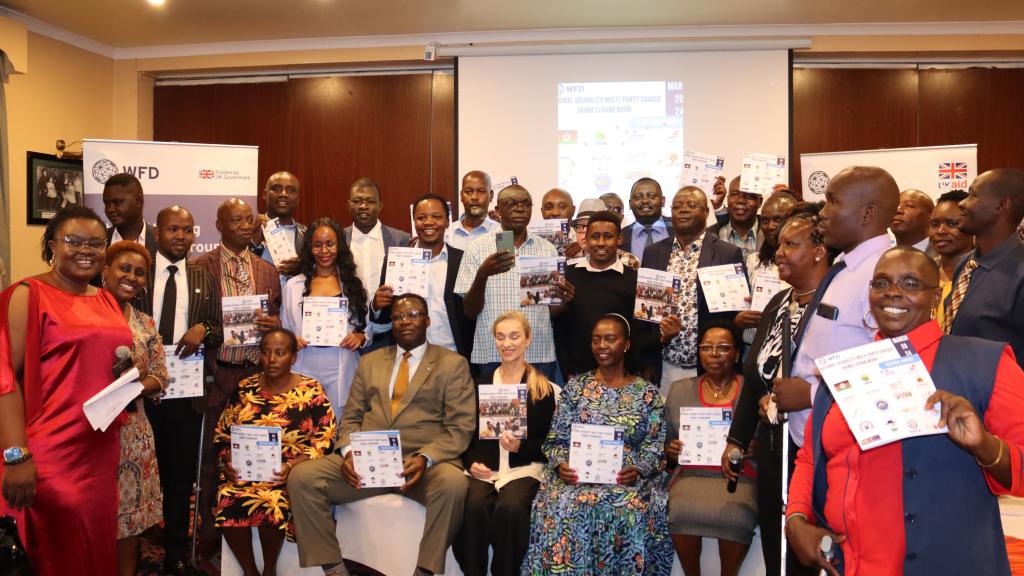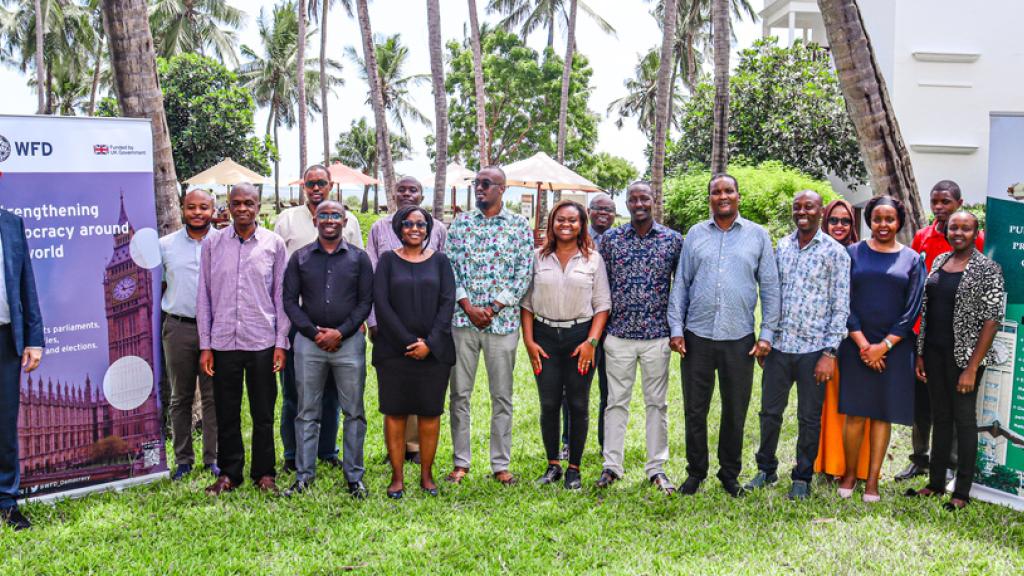Kenya, a pacesetter in political inclusion of persons with disability

The August 9, 2022, general election in Kenya saw more persons with disabilities (PWDs) vying for elective positions than previous elections. About 600 candidates with disabilities vied for various positions. Although only seven were successfully elected, the increased participation of PWDs in politics is a step in the right direction. This is especially true after research by WFD had previously revealed that PWDs in Kenya face systemic exclusion from politics.
Through funding from Demo Finland, WFD has been helping promote the inclusion and participation of persons with disabilities through the Kenya Inclusive Political Parties (KIPP) programme.
Successes of the programme
After the two years of implementation, the KIPP programme has registered good buy in and goodwill from its partners. This includes 21 organizations of persons with disabilities (OPDs), state actors, and 13 political parties. The 13 parties are the National Rainbow Coalition-Kenya (NARC Kenya), Amani National Congress (ANC), Kenya Africa National Union (KANU), Orange Democratic Movement (ODM), Jubilee Party (JP), Justice and Freedom party (JFP), Green Congress of Kenya (GCK), Progressive Party of Kenya (PPK), Party of Democratic Unity (PDU), Maendeleo Chap Chap (MCC), National Reconstruction Alliance (NRA), Wiper Democratic Movement (WDM), and Forum for the Restoration of Democracy-Kenya (FORD-Kenya).
This led to:
- The review and updating of party internal documents (constitution, nomination regulations, manifestoes) to ensure internal documents are reflective of disability inclusion.
- The 13 partner political parties formed and launched or re-launched their disability leagues as part of their party organs.
- 9 participating political parties provided waiver and subsidised rates on nomination fees for contesting PWDs in their party primaries. 11 political parties issued nomination certificates to 18 PWDs directly engaged in KIPP to contest in the August 9th elections.
- Political parties in the programme were among those with compliant party lists with PWD representation that led to the nomination of PWDs in the county assemblies and parliament. 9 of the 13 parties have also appointed and nominated PWDs in the National Executive Council (NEC)/ National Elections Board (NEB)/ National Governing Council (NGC) who have ensured that inclusive provisions are in place to support PWD participation in party businesses.
- The development, promotion, and the adoption of the minimum standards for inclusion of PWDs in the political parties.
- Increased informal and formal relationships and engagements between political parties and OPDs. As a result, political parties signed MoUs with OPDs on inclusion of PWDs.
- Amani National Congress (ANC) party launched its disability charter as a road map on how the party will handle disability matters, the charter is a good step to assist ANC in ensuring that PWDs fully and effectively participate in political and public life on an equal basis with other members.
- Three PPs – UDA, MDP, and DAP – which informally participated in the programme have demonstrated some progress towards formalisation of disability leagues, as well as inclusive provisions in their party documents, introduction of waivers and subsidies for PWDs to participate in party primaries.
- The progress amongst the original target political parties is also leading to positive spill-over effects where other parties have been inspired and supported, through cross-party forums, to pursue and adopt disability inclusion provisions in their own parties.
Additionally:
The programme has noted continued responsiveness and uptake of disability inclusion by the state actors – the Independent Electoral and Boundaries Commission (IEBC), the Political Parties Liaison Committee (PPLC), and the Office of the Registrar of Political Parties (ORPP). IEBC ensured voter education materials were converted into and available in braille. The commission also disaggregated statistics of registered voters to include PWDs – actively enforcing compliance with its regulations on party lists and inclusion of special interest groups by parties. ORPP and PPLC have also shown commitment to making disability inclusion a key issue within political parties’ management. Their active engagement has facilitated replication of the positive results realised in the programme beyond the KIPP programme partners to the 80 registered political parties in Kenya.
The KIPP programme technical working group (TWG) has been able to present and advocate for action from parties and relevant state actors. The TWG led in identification, dialogue, advocacy and lobbying on existing gaps that led to PWD exclusion in party business. This led to inclusion of PWDs in party governing structures, party nomination lists, and having functional leagues. The TWG is a cross-party and multi-stakeholder platform consisting of representatives from political parties, OPDs, and CSOs.
The participating organizations of persons with disabilities (OPDs) continue to demonstrate increased advocacy for PWDs inclusion. They have engaged in press conferences and media shows that were aired through the mainstream and other media channels focusing on the extent of inclusion of PWDs in the political processes. As a result, there is increased awareness and positive attitude among citizens.



